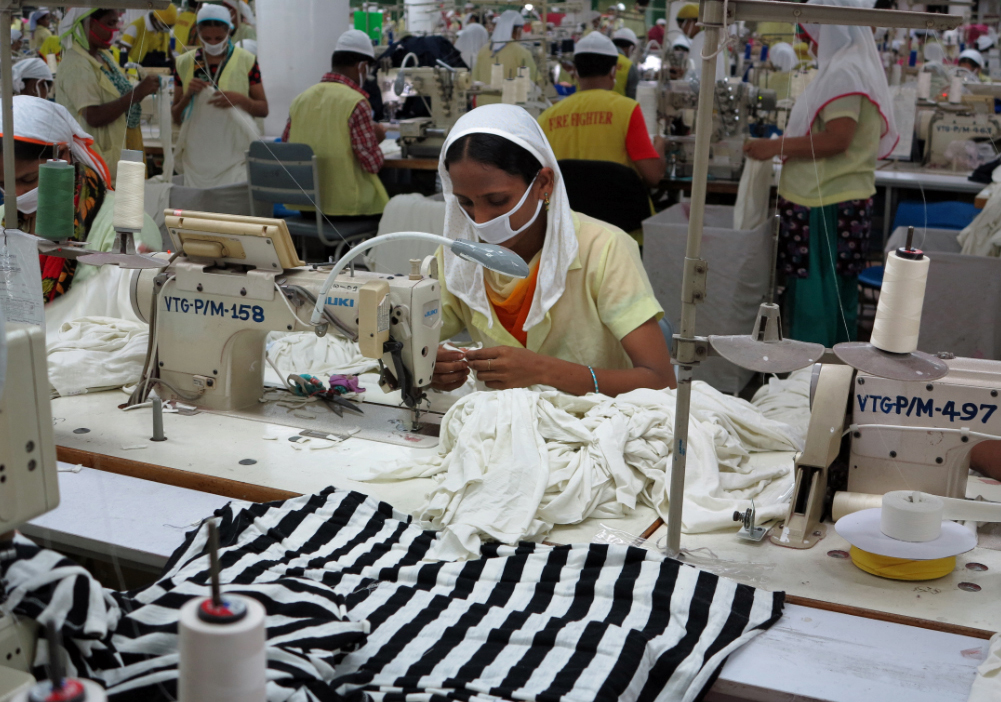Garment manufacturers in Bangladesh are failing to meet their own safety guidelines set up to protect workers from the coronavirus as factories reopen, union leaders have warned.
Bangladesh extended a nationwide shutdown on Thursday after daily reported deaths from the virus hit a new high, but restrictions on the garment sector, on which millions of households depend, have already been lifted.
That has raised concerns about the safety of workers, who began returning to the factories in late April, though the country’s main manufacturers’ association has said its inspectors found conditions were broadly satisfactory.
“Only 20 per cent of the factories are maintaining social distancing and that’s because they are big factories and they have space,” said Kalpona Akter, founder of the Bangladesh Centre for Worker Solidarity.
“The rest are focusing on the other aspects of the health guidelines such as providing soap or measuring the temperature of workers before they enter. On the whole, the situation needs to improve a lot more,” she added.
The Sommilito Garments Sramik Federation, a union representing more than 100,000 workers, said information from members in at least 100 factories showed most had struggled to maintain distancing, especially while entering and leaving.
Its general secretary Nahidul Hasan Nayan said workers were washing their hands and having their temperatures taken regularly, but production lines made distancing hard.

“There may be 20 lines of workers. Five of these lines probably do maintain social distancing, but the rest aren’t able to do that. It is especially tough for small factories,” he said.
Amirul Haque Amin, president of the National Garment Workers Federation, echoed his concerns, calling for staggered start times to help workers distance when entering and leaving the factories.
The Bangladesh Garment Manufacturers and Exporters Association (BGMEA), the country’s largest trade group for garment factory owners, said conditions in 492 of the 508 factories it had inspected were “satisfactory”.
But three government inspectors who spoke to the Thomson Reuters Foundation on condition of anonymity said the layout of machines in many factories made it difficult to keep workers apart.
One seamstress who asked not to be named said her factory was cleaner, but just as crowded as before the epidemic. Nonetheless, she intends to keep working.
“I am scared. But sitting at home won’t feed my child or pay my rent,” she said. “We are poor people.”
Bangladesh, which ranks behind only China as a supplier of clothes to Western countries, relies on the garment industry for more than 80% of its exports and its 4,000 factories employ about 4 million people, mostly women.
Its garment sector has been hit hard by the pandemic – exports fell by 84% in the first half of April as $3 billion-worth of orders were cancelled or suspended, according to factory owners.
Factories open now are working on completing previous orders and with no new orders in sight, analysts say jobs will be lost.
Mohammad Moshiur, who goes to work every day in a crowded bus arranged by his factory owner, said people like him have no choice but to keep working.
“Do you think I would have gone to work today if I had money? Of course not,” he said. “But this is the only way out.”

